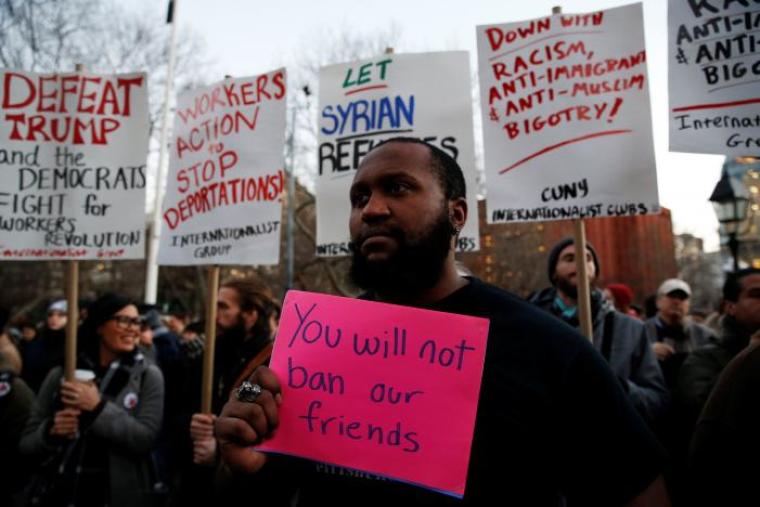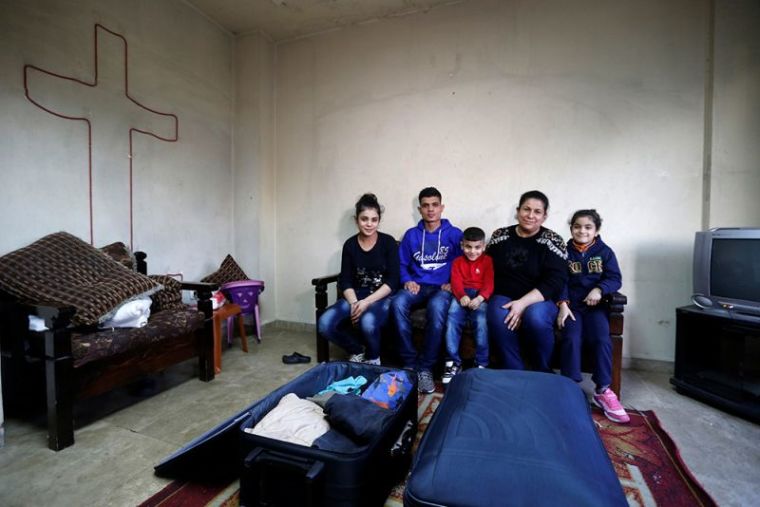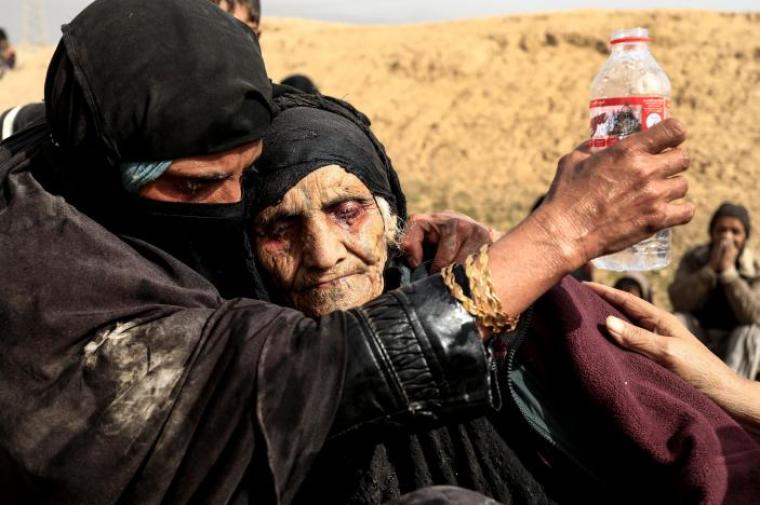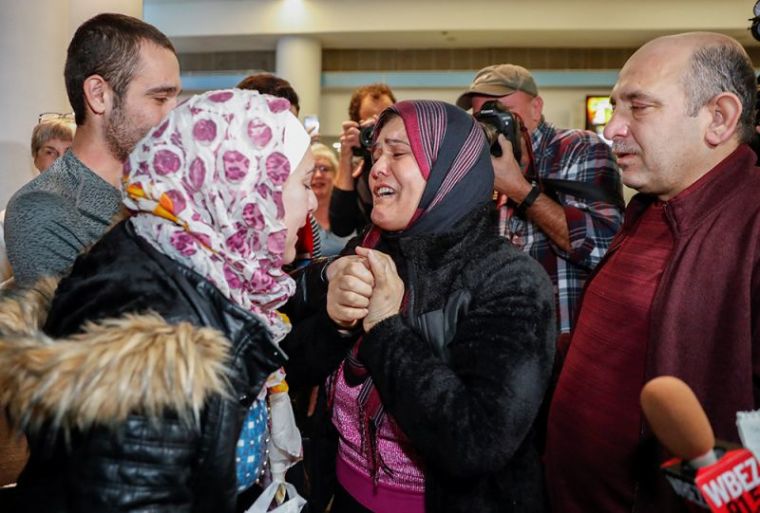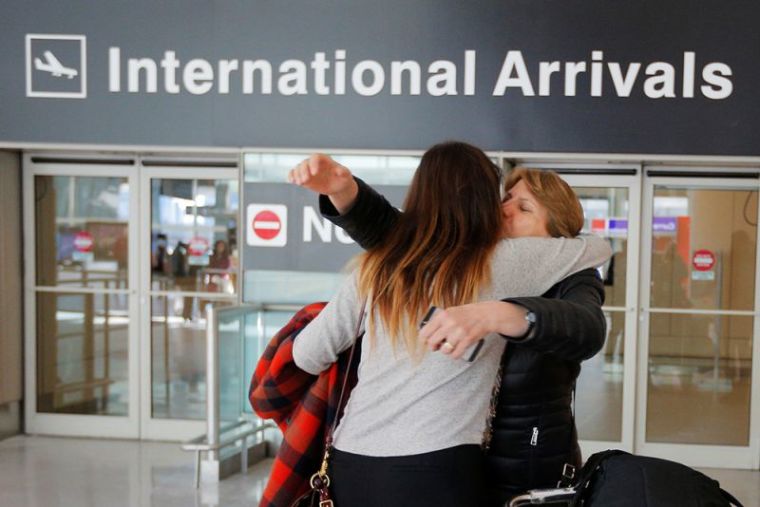Trump's Travel Ban: Protecting Americans From Jihad or Discarding Jesus' Call to Help the Stranger?
A number of American organizations have expressed strong disagreement when it comes to President Donald Trump's revised travel ban executive order, with Christians debating whether it serves to protect them from jihad, or if it stands against Jesus Christ's message of helping the stranger.
Trump's new executive order now bans people from six Muslim-majority countries from entering the U.S. for 90 days, removing Iraq from the list, while language calling for persecuted religious minority refugees to receive priority for resettlement has been omitted.
Some groups, such as the American Center for Law and Justice, suggested that the order will work to protect U.S. citizens from the dangers of terrorism.
"These significant changes not only ensure that America will be kept safe, but they also undercut the various legal challenges to the lawful order," the ACLJ wrote, while going through the specifics of the new executive order.
The conservative law group slammed efforts by those getting ready to challenge the order, saying, "However, the ACLU and its leftist allies have already promised to file new, frivolous lawsuits. In fact the ACLU has already released a statement calling attempts to project America from jihadist terrorist attacks 'bogus.'"
Some evangelical and Catholic groups spoke out strongly against the 120-day suspension of the refugee admission program, however, and the provision that caps the program to 50,000 refugees for fiscal year 2017.
"We remain deeply troubled by the human consequences of the revised executive order on refugee admissions and the travel ban. While we note the Administration's efforts to modify the executive order in light of various legal concerns, the revised order still leaves many innocent lives at risk," said the Most Rev. Joe S. Vásquez, bishop of Austin and chair of the U.S. Catholic Bishops Committee on Migration.
Vásquez added that by helping to resettle the most vulnerable, "we are living out our Christian faith and 'welcoming the stranger' as Jesus has challenged us to do."
He also argued that there is no justification for reducing the refugee program when there are more than 65 million people around the world today displaced from their homes.
Bill O'Keefe, vice president for government relations and advocacy at Catholic Relief Services, the U.S. bishops' international aid agency, warned that the travel ban is going to put further pressure on countries like Lebanon and Turkey, which have had to take the greatest numbers of refugees.
"When we don't do our part, it's tough for us to tell other countries to make the sacrifices we need to play their part. The risk of the system collapsing and of governments that are already strained not being willing to keep their doors open is very serious, and we're very worried about that," O'Keefe added.
Andrew Walther, Knights of Columbus vice president, argued that the United Nation's referral process for refugees, saying:
"As part of the 120-day review of refugee admission procedures, the UNHCR referral process for refugees should be closely scrutinized and the serious inequities in the number of Syrian refugees admitted from communities targeted for genocide should be rectified. The Obama administration's policy was to prioritize these groups. Despite this, they remained severely underrepresented in U.S. refugee admissions, so it is clear that a fair outcome is even more important than a stated priority.
"Both in immigration and in aid, communities targeted for genocide should not be at the end of the line. I am told by senior Church officials in Iraq that there has been a new openness from American officials in the last couple of months to helping those communities that have until now received no aid from the U.S. government or the UN. We applaud this, and look forward to this openness becoming concrete action that leaves no community behind, especially if it was targeted for genocide."
Tim Breene, CEO of the evangelical refugee resettlement agency World Relief, argued that although Trump's new executive order corrects some issues with the previous travel ban, it does not solve the "root problems" with the initial order.
Breene spoke out against "the cutting of refugee admissions by 55 percent and the inability for some of the world's most vulnerable refugees to come to the U.S.," calling the new order "more of the same."
Linda Hartke, the president of the second largest resettlement agency in the U.S., Lutheran Immigration and Refugee Service, also said that the new order "still prevents us from undertaking life-saving work during the most critical time for refugees and displaced persons in human history."
Others, such as Rabbi Jack Moline, president of Interfaith Alliance, an organization representing members of 75 different faith traditions, were even more critical, calling the ban "bigoted and un-American."
"Despite efforts by the president and his administration to spin the executive order as a security measure, the truth is self-evident. Today's action is fueled by anti-Muslim bigotry and motivated by a desire to score political points — not keep Americans safe," Moline offered.










